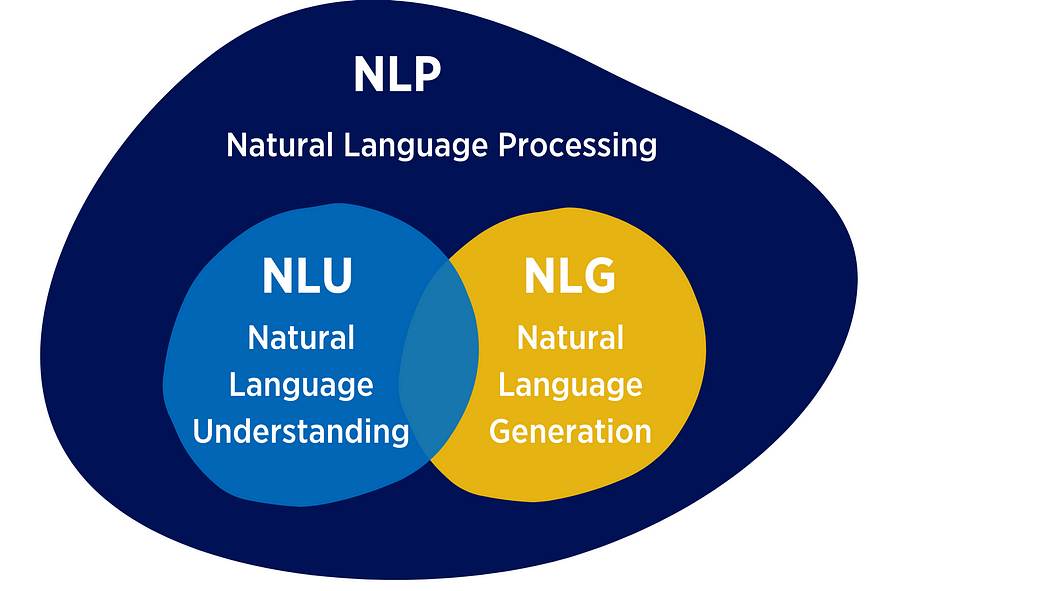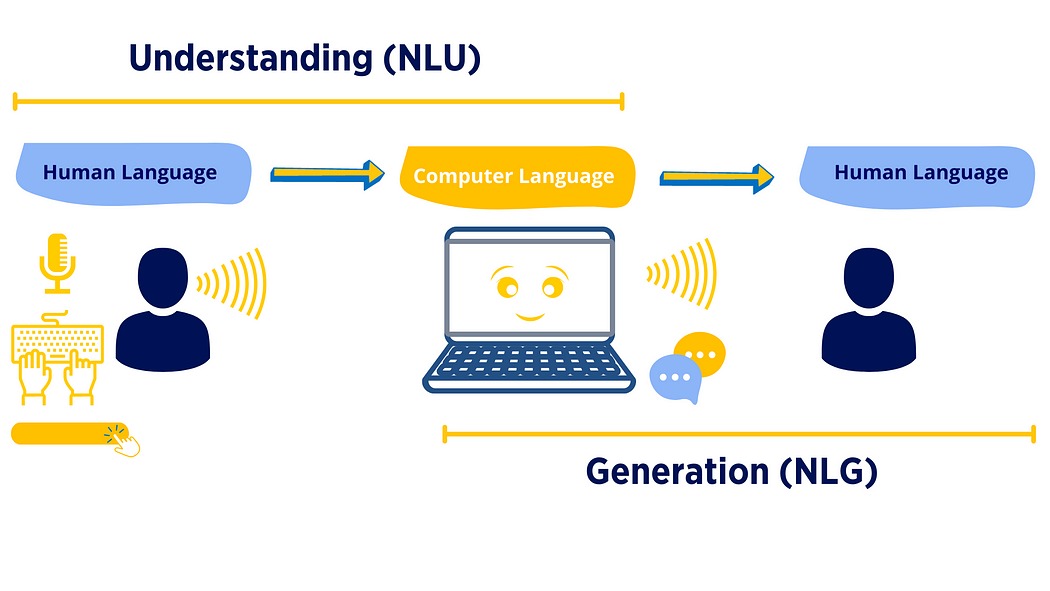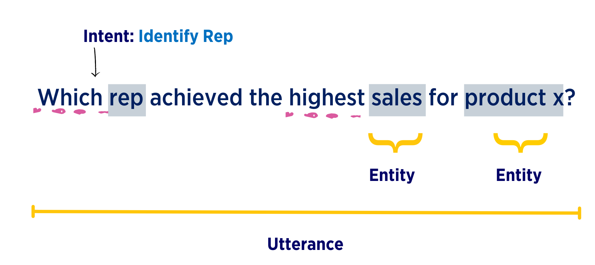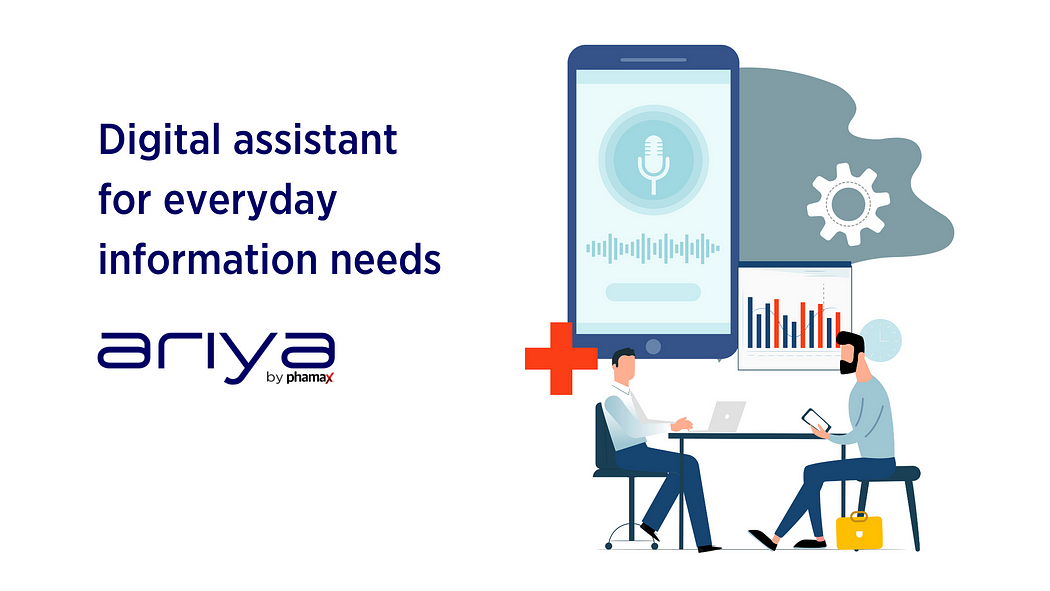Chatbots are everywhere in our daily online lives. Most of these chatbots are rule-driven, following a predetermined workflow that responds to text-based queries. However, there is never any sense that we are dealing with another human when we interact with a rule-driven chatbot. Any deviation from the expected response results in ‘Sorry, can you please repeat that?’ or termination of the process.
AI-driven chatbots are very different. Their responses seem more dynamic and flexible, even empathetic. This is because they leverage NLP (Natural Language Processing) and Machine Learning to understand what the user is searching for. Within its predefined limits, an AI-enabled chatbot or Conversational AI is trained to mimic human conversation.
A conversational AI-enabled digital assistant is even more sophisticated.
Read about Conversational AI in our previous blog
Conversational AI can do everything that AI-driven chatbots can do but also initiate and lead personalized conversations that feel entirely natural to humans. They seem to understand the context and get smarter with every conversation. Conversational AI is the driver guiding the advanced chatbot or virtual assistant in its interactions with human users. Let’s take a short look at NLP, to understand why it is such a game-changer and how it makes digital assistants more ‘conversational’.
NLP, NLU, and NLG: What do these Acronyms really mean?
Natural Language Processing (NLP) is the engine that translates the user’s message for any type of digital assistant. This translation into machine-friendly language allows the assistant to understand the user’s intentions.

So, what is NLP composed of? Natural Language Understanding (NLU) and Natural Language Generation (NLG) are the two indispensable elements in any NLP system. NLU deciphers the meaning of the text (or speech) that users input, while NLG generates the engine’s response.

Consider this simple equation for better understanding:
NLU + NLG = NLP
Let us give a practical example to show these processes at work.
When a busy account manager who needs quick access to numerical data or essential information consults an advanced digital assistant, NLP springs into action.
When a user submits a query, ‘Which rep achieved the highest sales for product x?’ the system’s NLU immediately identifies the user’s intention is to “identify” the entity ‘representative’ in relation to ‘product x’ and compare “sales”.

Chat vocabulary:
-Intent: What users want to do or know
-Utterance: Different ways a user can ask the question or order action
-Entity: Objects or values for the intent
Thus informed, it connects to the relevant data sources, fetches required information, and generates an appropriate response through Natural Language Generation (NLG) and Dialogue Management
An advanced assistant’s NLU capabilities can identify and relate these intentions even when the enquiry is phrased in another way. This classifies under “utterance”.
For example, the enquiry ‘Name the best performing rep for product x?’ will elicit exactly the same information from the assistant as the first enquiry.
This flexible understanding of spoken or written inquiries is what distinguishes an advanced chatbot from its simpler cousins. Even if the account manager phrases his question in obscure or idiomatic language, the digital assistant’s NLP can decipher the message, extract the key identifiers, relate the identifiers, and deliver the correct response.
How Healthcare Digital Assistants can leverage NLP
The NLP used by an advanced digital assistant is ‘domain trained’. This means it can identify industry-specific terms relational to the business domain viz medical terms, business names, and other keywords which stand outside the universal directory of normal NLP code.
Training an advanced digital assistant to understand context is also crucially important to Conversational AI.
Although training the digital assistant to understand the user’s exact needs can be a long and complex process, it is absolutely indispensable for an effective Conversational AI.
Similarly, a domain and context-trained NLG (Natural Language Generation) can swiftly understand specialist queries. Because it understands context as a human does, it can deliver appropriate responses to obscure questions within its given domain of enquiry. It can even structure data and text into coherent narratives or pithy synopses.
While it can seem a bit abstract or obtuse, NLP is central to delivering an optimal user experience for users of digital assistants. With appropriate training, an advanced digital assistant can become an empathetic and indispensable friend to the busy sales representative or marketing manager. No more lengthy calls back to head office for the latest research or sales data — a quick chat with your phone, tablet, or laptop will return trained and relevant responses in a matter of seconds.
Applying NLP to benefit users in the Healthcare Industries

At phamax, we have successfully applied advanced ASR (Automatic Speech Recognition) and NLP to improve our digital assistant’s conversational skills. This is why Ariya is able to deliver conversation users would expect from a friendly colleague. Responses are dynamic, relevant, and above all spontaneous. It works faster, more flexibly, and more efficiently than traditional methods when accessing and processing information. With Ariya, frantic phone calls or lengthy waits for relevant information are a thing of the past. In fact, Ariya has been delivering effective solutions for clients in the health industry for some time, with many use cases in the pharmaceutical field. Users in sales, marketing business support, finance, law, procurement, and medicine are all piloting Ariya’s advanced NLP capabilities to deliver better conversational AI. Here are a few use case examples:
- Efficient conversations: With its advanced and domain-trained NLP, Ariya extracts and delivers the information you require in mere seconds. It understands the context of your enquiry and responds to your specific needs and conversational style — in short, it is the friendly, competent personal assistant you always wanted.
- Save time in data and information discovery: Ariya’s continual accretion of data via API allows it to crawl huge amounts of data, monitoring it for emerging themes. Apart from saving huge amounts of research time, a CI-trained digital assistant capable of ‘social listening’ is the perfect solution for innovative companies who want to keep abreast of their competitors and ahead of the curve.
- Capture data and information: According to research, salespeople regularly lose up to 19% of their time on administration duties. Potential use cases are being developed for Ariya to autofill forms and CRM by dictation alone, eliminating the need to manually fill in pre-defined templates.
- Easy and simple access to information: Ariya is the ultimate tool for business users serving the healthcare industries, regardless of their role or department. This dynamic solution offers the opportunity to save time and improve efficiency by empowering employees and setting new standards for accessing and processing information.
Conclusion
Conversational platforms are rapidly transforming the way people interact with the digital world and user expectations are rising all the time. Digital assistants equipped with conversational AI apply the latest NLP advancements to enhance user experience with humane, productive, and flexible conversations.
To know more about Ariya write to us ariya@phamax.ch





